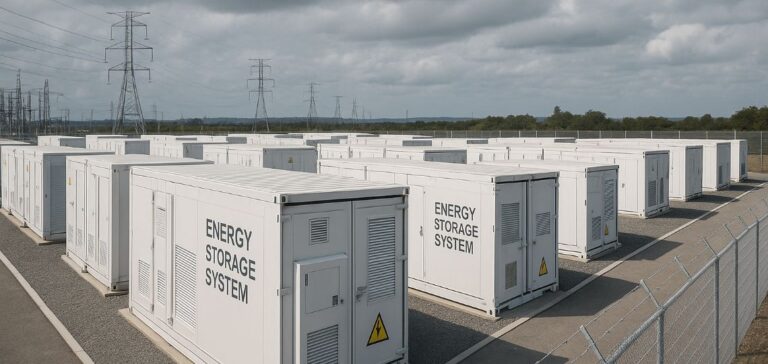Atlas Renewable Energy officially inaugurated the BESS del Desierto, a battery energy storage system developed in partnership with Chilean company COPEC through its subsidiary EMOAC. Located in the Antofagasta region of Chile, this project has an installed capacity of 200 MW and a storage capacity of 800 MWh, placing this facility among the largest in South America.
A strategic project for energy stability
The BESS del Desierto will store excess solar energy generated during the day to redistribute it during peak consumption hours. This solution aims to strengthen the stability of the power grid while reducing losses associated with the intermittent production of renewable energy. Atlas Renewable Energy stated that the experience gained with this project would serve as a model for further developments in countries such as Brazil, Colombia, and Mexico.
According to Carlos Barrera, co-founder and Chief Executive Officer of Atlas Renewable Energy, the integration of such systems shows that “we no longer have to choose between sustainability and reliability.” Alfredo Solar, Regional Director for Chile and the Southern Cone, added that BESS del Desierto is only one step among several megaprojects under development using energy storage systems.
Regional expansion and new financing
Atlas Renewable Energy recently secured $510mn in financing for its Estepa project, the largest in its history. This hybrid project combining photovoltaic and battery storage is supported by two long-term power purchase agreements signed with Codelco and Colbún, two major players in Chile’s mining and energy sectors.
The company plans to expand the use of energy storage systems to address the challenge of intermittency, a major barrier to the large-scale deployment of renewable energy. The initiative confirms Atlas Renewable Energy’s strategy to strengthen its presence in Latin America by tailoring its solutions to the specific needs of different markets.
A favourable regional dynamic for energy storage
Battery energy storage is gradually becoming a key component in Latin America’s energy infrastructure, as demand for renewable energy continues to grow. BESS del Desierto illustrates how these technologies can optimise the use of abundant natural resources while meeting the growing demands for grid stability and flexibility.
Atlas Renewable Energy plans to use its infrastructure to respond quickly to market developments and support companies facing high energy needs. The BESS del Desierto project could thus mark a turning point in how energy is produced, stored, and distributed across the continent.





















